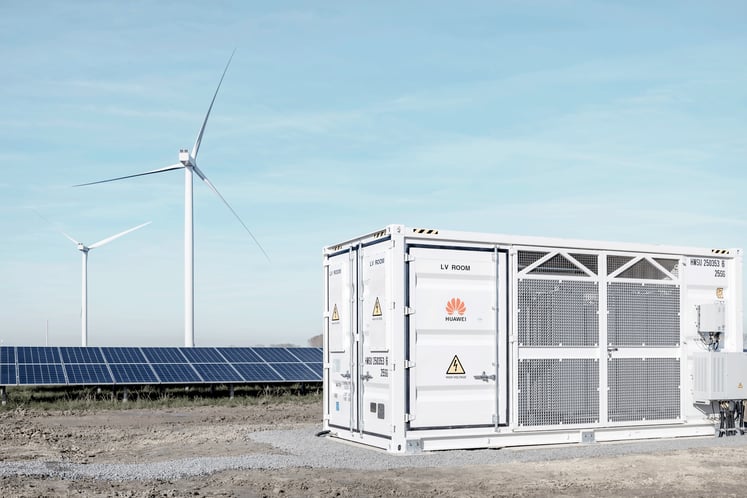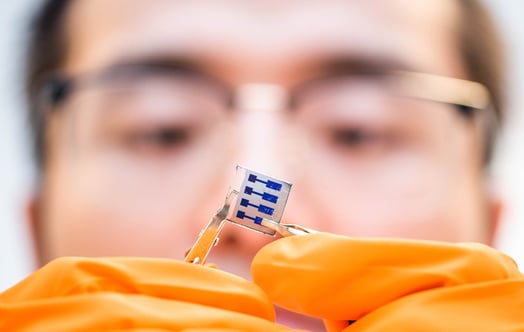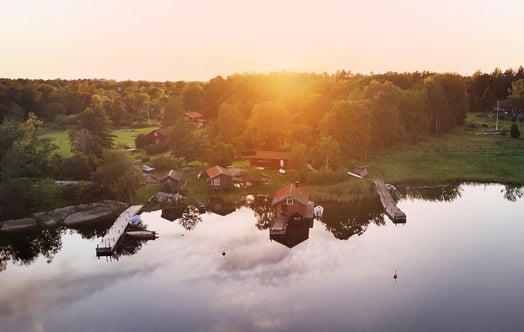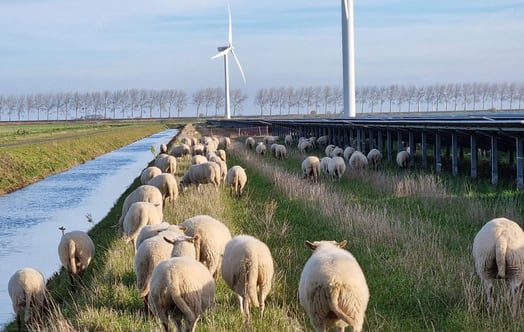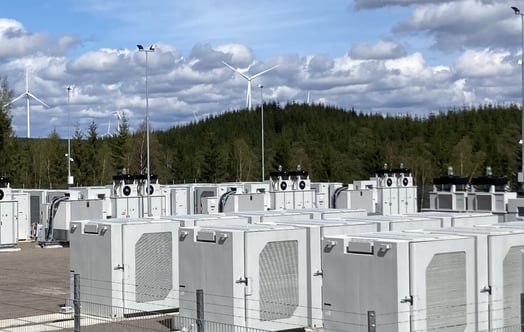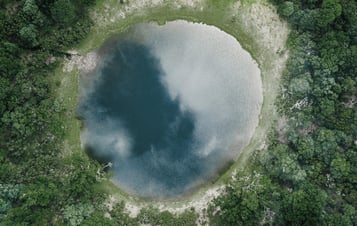Solar power
Solar power is essential in a sustainable and fossil-free energy system.
Solar power already plays an important role in the energy system, from small household installations to large-scale projects. In recent years, the cost of large-scale solar has dropped significantly, making it one of the most cost-competitive electricity generation technologies in many markets. Due to decreasing costs and low CO2 emissions, volumes of solar panels will continue to grow in our core markets and around the world; contributing to an increasing proportion of future electrification. Solar panels can also be called photovoltaic panels or PV panels.
Large-scale solar farms with co-located batteries
Large-scale solar farms with co-located batteries will play a pivotal role in transforming Europe’s energy system. Vattenfall’s portfolio is growing particularly in Germany, the Netherlands and the UK where large solar farms can be operated.
Vattenfall is developing and constructing the 76 MW Tützpatz solar park in Mecklenburg-Western Pomerania. The aim of the project in Tützpatz is to combine module types on different mounting systems with suitable agricultural uses over an area of 95 hectares, and thus gain further practical experience for future commercial projects of this kind. Construction at Tützpatz will be finalised in 2025.
Another example of smart use of technology is hybrid renewable parks, such as Haringvliet hybrid renewable park in the Netherlands, where six wind turbines, PV capacity, and a battery were co-developed and are connected to the grid via the same connection. This hybrid renewable park was commissioned in 2022.
Video player requires marketing cookies.
To view this content please click here to allow marketing cookies.
Combined hybrid parks
We are increasing the value of our core business technologies wind power and solar power by co-developing and co-locating integrated battery solutions where feasible. More about hybrid parks in this video:
Advancing sustainable land use with agri-PV
The shift to renewable energy requires efficient land use that balances energy production and agriculture. Photovoltaics is a widely accepted technology, but there are concerns about its impact on farmland. Agri-PV addresses this by integrating solar power with active farming, ensuring agricultural productivity while expanding renewable energy generation.
Vattenfall is developing agri-PV on a commercial scale in cooperation with partners, exploring different applications such as arable farming, animal husbandry, and permanent grassland use. Vattenfall’s Symbizon project focuses on integrating solar panels with arable farming, while the Tützpatz project examines how solar installations can be combined with livestock farming. Other initiatives explore the potential of solar energy in areas with permanent grassland.

Our power plants
Find out more about Vattenfall’s power plants and facts about how much electricity and heat we are producing.
News and press releases
Related content

Renewable energy, like wind power, is the key to reducing global CO2 emissions.
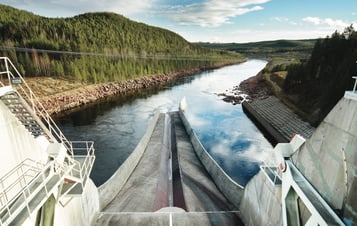
Hydro power is economically attractive and has low levels of CO2 emissions.

Biomass is a renewable energy source and can be used to produce both heat and electricity.

